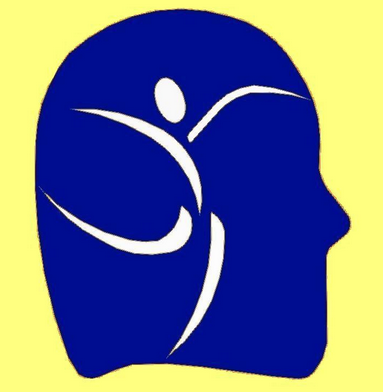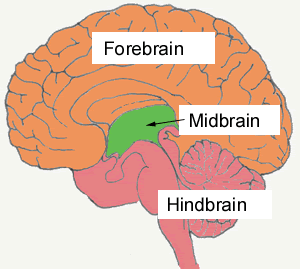Use Your Body to Boost Mental Performance
 Cognition is embodied. That is, how well you think and learn is in part controlled by how you use your body. We have covered many examples of how this works in the Next Brain Blog including stepping back for better emotional control, talking with your hands, thinking by walking around, posture effects (e.g. folding your arms) and short-duration physical activities interspersed with study.
Cognition is embodied. That is, how well you think and learn is in part controlled by how you use your body. We have covered many examples of how this works in the Next Brain Blog including stepping back for better emotional control, talking with your hands, thinking by walking around, posture effects (e.g. folding your arms) and short-duration physical activities interspersed with study.
See Use Your Body to Improve Thinking Instantly for more details.
Now the PsyBlog offers an excellent summary in 8 Easy Bodily Actions that Transform Mental Performance. These include for example, how using a deep voice can improve abstract thinking, a power stance can improve your sense of control, and just imaging yourself walking towards an important person or object can increase a sense of mastery.
Some of these are new to me and I am actively experimenting with them. Interested to hear from readers that have tried them out.
Categories: Lifestyle, Manage Emotions, Memory and Learning, Mental Focus, Problem Solving, Training Tags:
More Evidence for Mind-Body Techniques
 In the Next Brain Blog we look at evidence-based techniques for achieving peak mental performance at any age. What can we do to maintain brain health and improve cognitive performance?
In the Next Brain Blog we look at evidence-based techniques for achieving peak mental performance at any age. What can we do to maintain brain health and improve cognitive performance?
Several posts have focused on mind-body techniques. Such techniques ask us to focus on the connection between how we think and feel and various bodily functions and activities. Yoga, mindful breathing and mediation are examples. While such techniques are often viewed as fuzzy or new age, we have been documenting the growing evidence for how they improve brain function and cognitive performance on the Next Brain blog.
Additional evidence was recently published by the Boston University School of Medicine. They conduct a class with 27 medical students on Embodied Health: Mind-Body Approaches to Well-Being. It ran for 11 weeks and covered the neuroscience and methods for slow breathing, resistance breathing, Yoga, the placebo effect and mindful mediation practices. Students were asked to practice the methods at least three times per week.
Assessments before and after the course revealed a statistically significant improvement in the student’s capacity for self-regulation and self-compassion.
Self-regulation is our ability to manage our thoughts, feelings and impulses in order to achieve planned behaviors and goals. A capability that is essential for improvement, success and well-being in any walk of life.
For more information you can access the entire article for free. Be sure to check out table one that lists the topics and required readings for the course.
While the Boston work does not surface any new techniques it does add to the evidence for the effectiveness on the mind-body approach. The fact that doctors-to-be are learning about them in medical school signals a maturing and acceptance of the the approach.
How are you using mind-brain techniques to improve your cognitive performance?
Source of Image: Dr. Deb’s Psychological Perspectives
Categories: Ancient Ways, Executive Function, Manage Emotions, Training Tags:
Use Clothes to Improve Cognitive Performance
 There are small things we can do with our bodies to improve brain function and cognitive performance in real-time. I have documented many of these techniques on the Cognitive Design blog and you can find them under the tag embodied cognition. Some examples:
There are small things we can do with our bodies to improve brain function and cognitive performance in real-time. I have documented many of these techniques on the Cognitive Design blog and you can find them under the tag embodied cognition. Some examples:
- Holding objects can improve certain types of reasoning and recall
- Walking can improve thinking
- Clenching muscles amplifies will power
- Stepping back from a difficult situation can trigger higher cognitive functions
- Feeling warm or cold primes our emotional judgments about other people
- Swaying back and fourth can improve reflection
- Making hand gestures can improve learning and recall
- Short duration physical breaks (e.g. playing catch) between sessions improves conceptual learning
- Body posture impacts how confident we are about our beliefs and thinking abilities.
So our minds work in part by the way we use our bodies. Now new research indicates that cognitive performance can also be tuned by the clothing we put on our bodies or so-called enclothed cognition. For example:
“If you wear a white coat that you believe belongs to a doctor, your ability to pay attention increases sharply. But if you wear the same white coat believing it belongs to a painter, you will show no such improvement.”
Our cognitive performance improves when we believe we are wearing smart clothes!
I am interested to hear from readers that use clothes that they believe make them smarted. Could be tie, top or outfit you wear to perform well on a test or during an interview. Please describe it and explain why it works.
Categories: Manage Emotions, Memory and Learning, Mental Focus Tags:
Boost Your Brain But Not Too Much!
 The purpose of the Next Brain Blog is to explore ways to enhance brain function and improve cognitive performance. The blog is dedicated to exploring all ways of improving learning, decision-making, creativity, memory, levels of mental energy, pattern recognition, embodied cognition and all things mental. Nature gave us a hindbrain, midbrain and forebrain to deal with challenges in the environment. Optimistically, this blog assumes that we have the science, technology, drugs and training methods to take over where nature left off and create a Next Brain.
The purpose of the Next Brain Blog is to explore ways to enhance brain function and improve cognitive performance. The blog is dedicated to exploring all ways of improving learning, decision-making, creativity, memory, levels of mental energy, pattern recognition, embodied cognition and all things mental. Nature gave us a hindbrain, midbrain and forebrain to deal with challenges in the environment. Optimistically, this blog assumes that we have the science, technology, drugs and training methods to take over where nature left off and create a Next Brain.
But is cognitive enhancement necessarily a good thing? An interesting new article, Why Aren’t We Smarter Already: Evolutionary Trade-0ffs and Cognitive Enhancements suggest that perhaps it is not. The article points out that:
- Having a bigger brain means a baby’s head might not make it through a mother’s pelvis region leading to increases in infant mortality
- Cognition enhancing drugs such as Ritalin can cause poorer performance in individuals with normal attention levels and may interfere with some tasks such as driving because they cause us to over focus on the wrong things
- Having a super sharp or extraordinary memory seems to correlate to leading a difficult life and would certainty magnify the effects of trauma
- Very high IQ individuals may be more prone to genetic nervous system disorders.
The authors argue that our brains are in a natural balance with other parts of our bodies and the environment. Radical improvements in any aspect of cognition throws us out of balance and results in problems. While such fundamental trade-offs might make a supermind or megamind unlikely, the authors point out:
“If you have a specific task that requires more memory or more speed or more accuracy or whatever, then you could potentially take an enhancer that increases your capacity for that task,” he says. “But it would be wrong to think that this is going to improve your abilities all across the board.”
While interventions that are strong enough to create radical cognitive improvements are some time off, the article does begin to develop a framework for a deeper understanding of the issues and limitations associated with our ambition for bigger better brains.
Categories: Cognitive Development Tags: smart drugs
Use Your Body to Improve Thinking Instantly!
 Over the last 20 years scientists have made good progress in understanding how our bodies impact the way we learn, think, solve problems manage emotions and do other mental tasks. A new view has emerged called embodied cognition that argues how our minds work is strongly determined by how our bodies interact with the world.
Over the last 20 years scientists have made good progress in understanding how our bodies impact the way we learn, think, solve problems manage emotions and do other mental tasks. A new view has emerged called embodied cognition that argues how our minds work is strongly determined by how our bodies interact with the world.
Embodied cognition has practical implications for improving cognitive performance and will be a frequent topic on the Next Brain Blog. For example, taking simple actions such as literally stepping back when faced with a tough problem or more complex actions such as taking a walk lead to better results.
This is an exciting result because it shows a very simple actions can immediately improve the performance of our minds and brains!
Talking and thinking with our hands, how we sit or hold our arms (body posture) and any sort of short-duration physical activity have all be shown to improve various aspects of thinking, problem solving and learning.
Take for example the 2007 study that was recently blogged about as, Unravel Problems by Folding Your Arms, in Psychology Today. The idea that folding your arms could in fact help you solve hard problems may seem a bit simplistic but there is some neuroscience behind it:
“Crossing our arms, Friedman and Elliot argued, sends our a brains a “proprioceptive cue.” “Proprioception” is the scientific term for our perception of the relative position of our body parts. When our arms are crossed it tells the brain to buckle down and get ready to work through a difficult problem. So next time you’re faced with a protracted project or a tough task, cross your arms to see it to a speedy, successful conclusion. Just remember, while our brains perceive crossed arms as a sign of perseverance, others may perceive it as a sign of boredom. Body language can mean many different things to different people in different situations-it’s part of what makes the field so exciting!”
If you are still skeptical watch the highly effective problem solvers around you. What do they do with their bodies when they are stumped?
Source: Image adapted from Moving Bodies.
Categories: Lifestyle, Memory and Learning, Problem Solving Tags: embodied cognition

